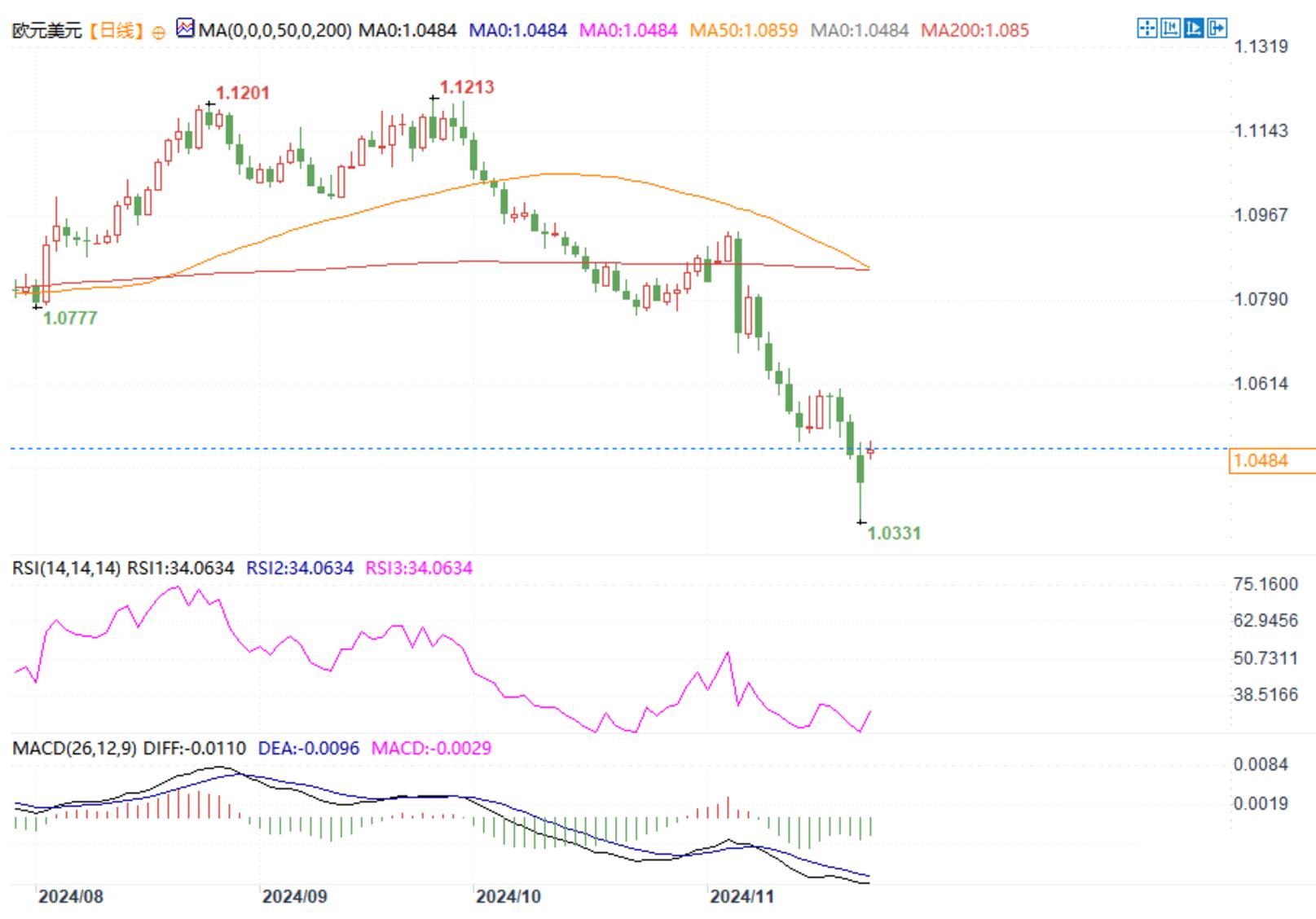What is the outlook for the Euro? Deutsche Bank and Morgan Stanley are bearish, while UBS is expected to fluctuate and rebound by the end of the year
Some institutions believe that due to the incomplete digestion of the impact of the "Trump trade" in the foreign exchange market, the EUR/USD is accelerating towards parity levels.
Deutsche Bank and Morgan Stanley are bearish on the euro
On November 21st, George Saravelos, a foreign exchange analyst at Deutsche Bank, said, "We are still very bearish on the euro against the US dollar
At the time of the release of this viewpoint, the November Eurozone PMI data showed that the region's economy was approaching recession levels, and the euro fell against the US dollar in response.
After the release of this data, the possibility of the European Central Bank cutting interest rates by 50 basis points in December has increased, further widening the gap in interest rate expectations between the European Central Bank and the Federal Reserve, which usually puts pressure on the euro.
The euro fell to a two-year low of 1.0331 against the US dollar after the data was released, but Deutsche Bank predicts more declines in the coming months.
Saravelos pointed out, "The market has not fully taken into account the Trump factor. We remain bullish on the US dollar, believing that even if the euro reaches parity with the US dollar, it will only reflect 50% of the strength of Trump's policy portfolio; depending on next year's development, there may even be greater downside space
Morgan Stanley analysts suggest shorting the euro against the US dollar and state that a comprehensive victory for the Republican Party in the election is the most favorable potential outcome for the US dollar.
Morgan Stanley analyst Patrick R. Locke said, "We maintain a long position in the US dollar and expect US policies to become clear soon, including tariff risks and clearer fiscal plans. Sell the euro directly against the US dollar
Locke believes that tariffs and Trump's fiscal policy plan remain the main channels through which the US election affects the global foreign exchange market, and from a market perspective, at least tariff policies may be activated.
He said, "No other currency has the characteristics of the US dollar - higher growth and stock market returns, defensive attributes. Even without announcing formal tariffs, emotional shocks from other countries may have a substantial strengthening effect on the US dollar
UBS: Technically speaking, the euro is expected to rise against the US dollar by the end of the year
However, UBS strategists suggest that from a technical perspective, the euro to dollar exchange rate may be higher than its current level by the end of the year.
UBS strategist Vassili Serebriakov said, "Although we agree with the long-term bullish view on the US dollar, we still believe that there is a greater likelihood of volatile trading within the existing range for the rest of this year, rather than a decisive trend for the US dollar to break through new highs
He believes that the current trend is indeed favorable for the strengthening of the US dollar, but points out that there have been relatively few sustained range breaks in the global foreign exchange market in the past two years. To achieve this breakthrough, there needs to be continuous news favorable to the US dollar.
Serebriakov added, "At least until Trump takes office, such news may be relatively rare, as revealed by recent internal struggles surrounding the nomination of the Treasury Secretary

EUR/USD daily chart
Tips:This page came from Internet, which is not standing for FXCUE opinions of this website.
Statement:Contact us if the content violates the law or your rights
